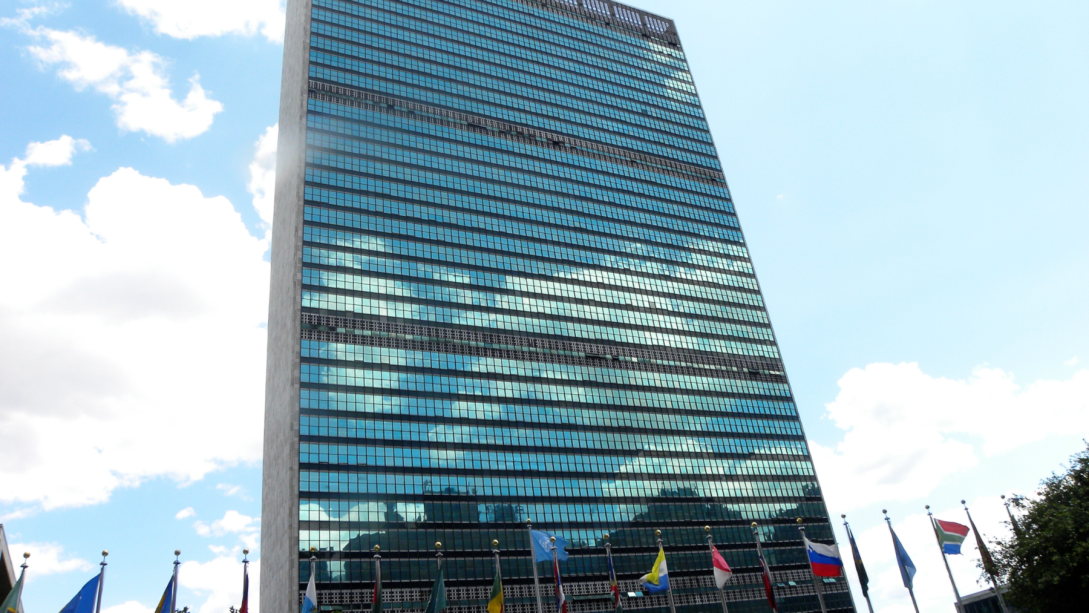EU at UNGA 78 - Navigating Global Crises for a More Equitable World

This year’s session takes place against a complex backdrop: from Russia’s illegal war of aggression against Ukraine and its global consequences, to the situation in the Sahel and other parts of Africa, as well as the climate emergency, rising food insecurity, backsliding on achieving the Sustainable Development Goals (SDGs), and many more pressing issues. These are challenges that require collective resolution.
The EU remains globally engaged, in words and in action, protecting the UN Charter and standing up for human rights while it continues to work with partners to uphold the rules-based international order. This is vital to addressing today's complex crises, all of which significantly contribute to global inequalities and instability.
As of today, High Representative for Foreign Affairs and Security Policy/Vice-President of the European Commission, Josep Borrell, is in New York to participate in a series of high-level events and meetings with world leaders.
Throughout the coming week, his agenda includes meetings with UN Secretary-General António Guterres, chairing of the Informal EU Foreign Ministers Meeting, and the UN General Debate Opening.
Among others, the High Representative will host the Western Balkans Lunch meeting, and co-host several significant events, such as the 18th Ministerial Dinner on the Middle East, the Ministerial-level event for the 'Peace Day effort” and the Ministerial Global Counterterrorism Forum.
His agenda will further include multiple bilateral meetings with leaders from Asia, Africa, the Middle East, the Southern Neighbourhood, and Latin America.
The EU will also be represented by the President of the European Council Charles Michel and the President of the European Commission, Ursula von der Leyen.
Three overarching priorities will shape EU’s agenda during the 78th session of the United Nations General Assembly:
Accelerating the implementation of the SDGs
Mobilisation of a strong political commitment and of financial resources from all sources, close cooperation and swift action are key to this end. Financing for Development is crucial and the EU welcomes the UN Secretary-General’s efforts to scale-up long-term financing for development and improve transparency on the use of resources.
Global Gateway is the EU’s offer and key contribution to accelerating delivery of the SDGs worldwide. It aims to boost smart, clean and secure links in digital, energy, and transport sectors and to strengthen health, education and research systems across the world.
And the EU will continue to be at the forefront of global climate action, addressing the interlinkages between the triple planetary crisis of climate change, biodiversity loss, and pollution, and promoting a human rights-based and gender-responsive approach, social justice, fairness and inclusiveness in the global transition towards climate neutrality.
Strengthening global governance in line with the UN Secretary General’s “Our Common Agenda” proposals for reform and modernisation
The EU strongly supports the global governance reforms proposed by the UN Secretary-General in ‘Our Common Agenda’ aimed at making the multilateral system more inclusive, more networked, and more effective, and is committed to playing a leading role in the implementation of these reforms.
Meaningful youth engagement needs to become a pattern in all UN decision-making processes. Civil society and other stakeholders also have a crucial role to play.
Furthermore, strengthening the peacebuilding architecture, including by ensuring adequate, predictable and sustained financing is of key importance.
Building global partnerships to help achieve our common goals
In tackling today's urgent challenges – from climate and biodiversity to global health and the digital transition – partnerships are essential.
The EU stands as a constructive, principled, and dependable ally, committed to bringing stakeholders together, fostering dialogues, and finding sustainable solutions rooted in the UN Charter, international law, and human rights.
The EU will continue to listen to the concerns of its partners and address global imbalances affecting vulnerable nations, working to meet their interests and needs.




